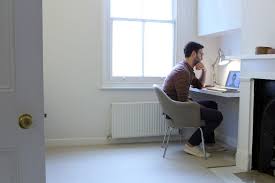Introverts, are you lonely?
More specifically, are you lonely at work? That question was asked as part of a 2018 Global Work Connectivity Study conducted by Morar Consulting and Future Workplace. The findings may surprise you. “Workers spend almost 50% of each day on digital vs in-person communication and more than half feel lonely as a result.
And perhaps the most surprising finding of all was that introverts (63%) feel lonely more often than extroverts (37%). As an introvert myself I rarely ever feel lonely. I enjoy reading, writing, reflecting, walking, cooking, yoga all things that I can do on my own. Not that I don’t like to socialize but my socializing tends to be in small doses.
So why so many lonely introverts in the workplace? The study didn’t go into a lot of detail so I will share some of my thoughts about this intriguing puzzle.
Could it be that introverts don’t have a best friend to confide in?
As far back as 1999, The Gallop Organization, was asking employees the question “Do you have a best friend at work?”. And according to writer Annamarie Mann this is the most controversial question that Gallop asked in 30 years of employee engagement research. This question remains controversial because many managers don’t believe that socializing with friends is a priority in the workplace.
Mann goes on to say that we spend most of our waking hours at work and it’s only natural that we want to feel connected to the people we work with. In the absence of having work friends we feel lonely and isolated.
Just because we prefer our own company doesn’t mean we don’t want to be included in social activities with colleagues at work. Some of us remember all too clearly what it felt like when we were picked last for team activities in gym class at school. For me it was devastating!
Introverts are often misunderstood because of the way we communicate. We often hesitate to answer questions, sit quietly in meetings or group situations and let others carry the conversation. Or we don’t show up at all, preferring to hide out in our offices while the more social extroverts are working together.
Or, maybe, we are highly sensitive. 70% of introverts are highly sensitive according to psychologist and author Elaine Aron. Aron wrote The Highly Sensitive Person to educate us about the challenges that HSP face.
Another psychologist, Marti Olsen Laney, was one of the first people to write about introverts and introversion. Back in 2002 she wrote the bestseller The Introvert Advantage: How to Thrive in and Extroverted World. In her book Laney has this to say about why introverts seem to be antisocial:
“It’s easy to see why introverts can appear self-absorbed or uninterested, because we shut down external stimulation when we have had enough. Why? We need to compare external experiences to our own internal experience, attempting to understand new information against our old information…extroverts are also focused on the self, but in a different way. Extroverts like socializing and require the company of others.”
Besides introversion and extroversion there may be other aspects of our personalities that influence how we feel at work. The Myers-Briggs Type Indicator or MBTI measures four areas of our personalities:
- Introvert/Extrovert: How or where we get our energy.
- Sensing/Intuition: How we take in information.
- Thinking/Feeling: How we make decisions/come to conclusions after we have taken in the information.
- Judgement/Perception: How we approach the world in general.
Introverts who score high on F for feeling have a stronger need to socialize with people than introverts who score higher on the thinking preference.
Let’s return to the study that I started with at the beginning of this post. As with a lot of studies this one leaves me with more questions than answers. Best not to take the findings at face value. Instead dig a little deeper into why introverts are lonely in the workplace and find ways to help them feel more connected!
What do you think?

